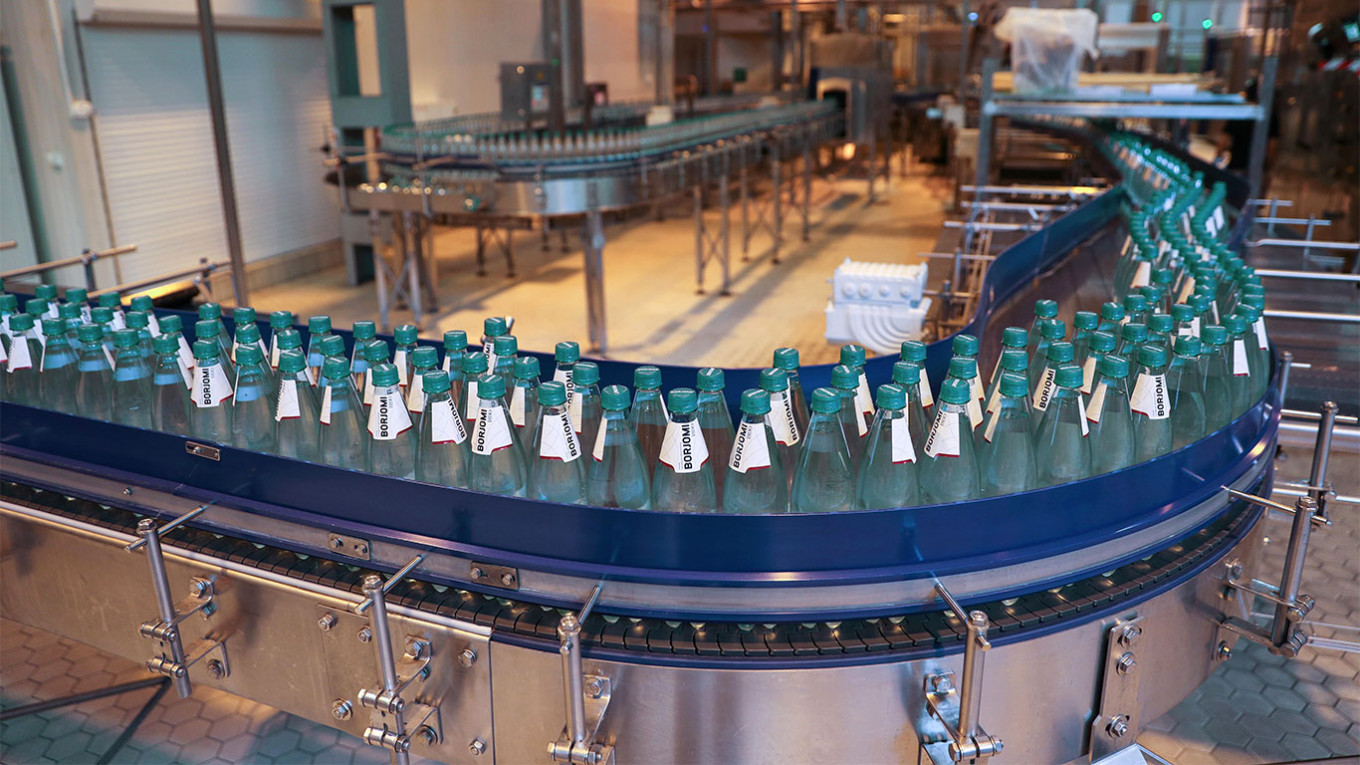
Up to 400 workers at Georgia’s Borjomi mineral water factory have gone on strike as the firm’s Russian owner has been hit by sanctions and the company stopped paying salaries.
The Georgian government, meanwhile, says it has worked out a plan to bail out the company by taking over the Russian shares.
Borjomi’s salty tasting mineral water is hugely popular across Russia, where it is widely believed to have health benefits.
In late April, Borjomi announced that it was halting production, citing disruptions in market access and banking services caused by the war in Ukraine.
While the company’s mineral water is an iconic Georgian brand, Russia’s Alfa Group owns 60% of its shares. As a result of the Russian invasion the company and its co-founder Mikhail Fridman were hit by American and European sanctions.
The European Union said in its announcement that Fridman had “actively supported materially or financially and benefited from Russian decision-makers responsible for the annexation of Crimea and the destabilization of Ukraine.”
As talks between workers and management failed to find a new arrangement to preserve jobs during the crisis, the company in early May dismissed a reported 50 employees, most of them production workers, through what the company called a “reorganization.” The labor union argued that the move was a punitive measure against workers who had led a successful strike the year before.
In the meantime, the government and company worked out a plan for the state to take over a portion of the shares – presumably 11% – from Alfa, which would leave the majority of the shares in non-sanctioned hands. Georgian media have reported that the remaining 40% of the company shares are owned by the family of late Georgian billionaire Badri Patarkatsishvili, which sold the controlling share of the stocks to Alfa in 2013.
“The state will become a co-owner of Borjomi, which will solve this problem,” Prime Minister Irakli Garibashvili said during a government session on June 6. Garibashvili said that the Ministry of the Economy had “practically” concluded the talks with IDS Borjomi and the issue would be discussed during a government session the following week.
Garibashvili made a similar promise on May 21, two days after the company announced that, following negotiations, it had presented the Georgian government with “a formal offer to grant part of its shares free of charge.” Without specifying the number of shares it was ready to give away, the company said that the move would “enable the government of Georgia to take part in managing the international company.”
The prime minister then mentioned a figure of “roughly $100 million worth” of shares that the company was ready to grant the government, which he said would help the company continue to operate without disruptions.
But Garibashvili then headed overseas for visits to Jordan, Israel and Slovakia, and with no deal in place and salaries still not being paid, workers at the plant took action.
About 400 workers went on strike on May 31, with demands including reinstatement of the dismissed workers, salary payments, indefinite contracts, pay raises and a collective agreement.
Workers “haven’t been paid salaries for two months, they have unlawfully dismissed 50 employees, they force, blackmail and threaten the employees into accepting and agreeing to exploitative conditions,” Giorgi Diasamidze, head of a union representing Borjomi workers, said as he addressed striking workers on June 6.
The strike came as the company announced it had resumed production in small volumes, primarily to supply the Georgian market.
Also on June 6, the Ministry of Health, Labor and Social Affairs said it was assigning the state Labor Inspectorate and a mediator to try to negotiate an agreement between workers and management.
The company said in a statement that it was willing to cooperate with the Inspectorate but cited “extremely limited financial resources” and “challenges the company is facing amid imposed sanctions, frozen [bank] accounts, and complicated access to markets.”
IDS Borjomi International, which also operates water businesses in Russia and Ukraine, runs two factories in Georgia through its subsidiary employing over 600 people, half of them production workers. In total, more than 1,000 workers were expected to lose their jobs should the business stop working, company officials have said.